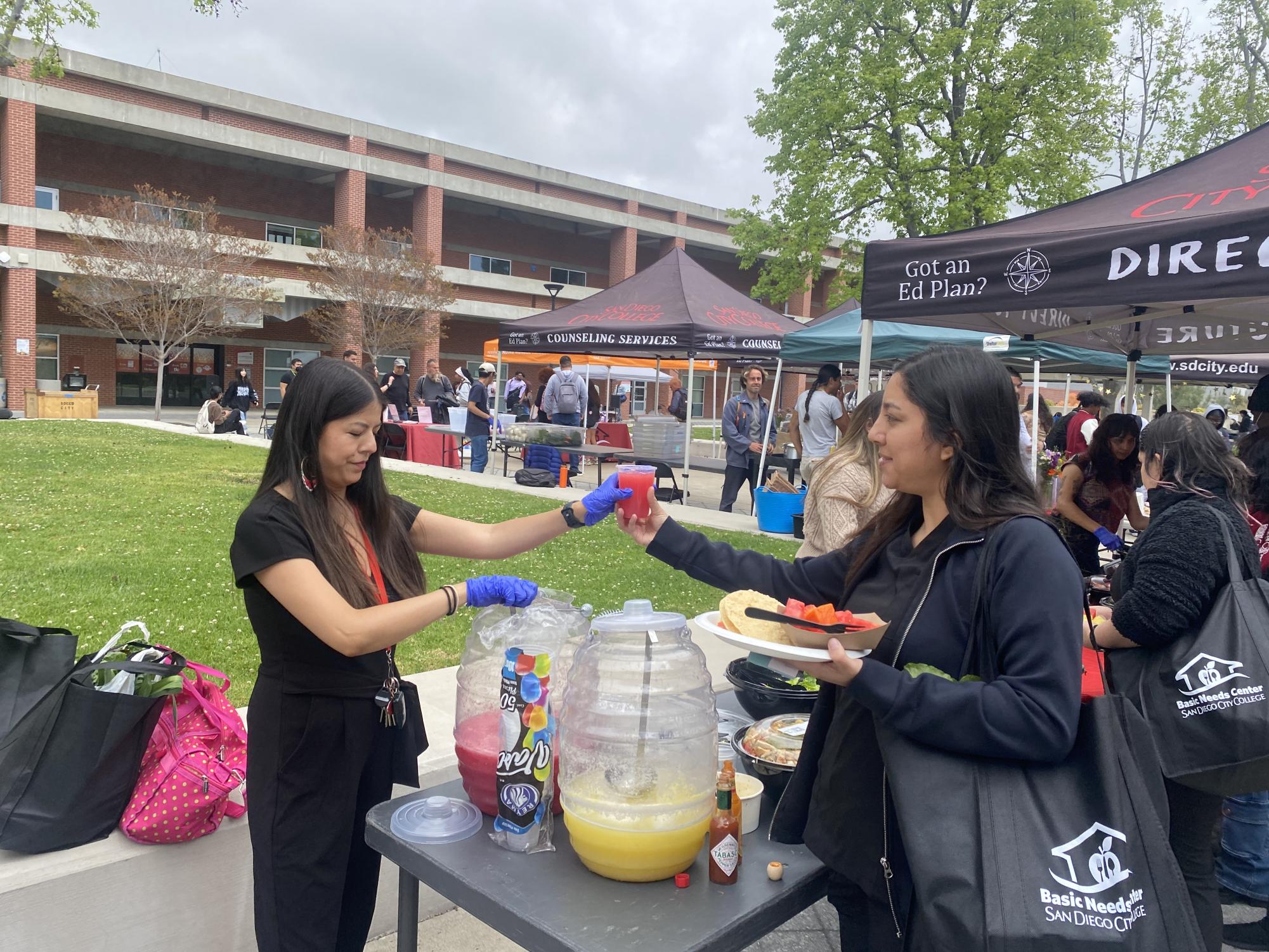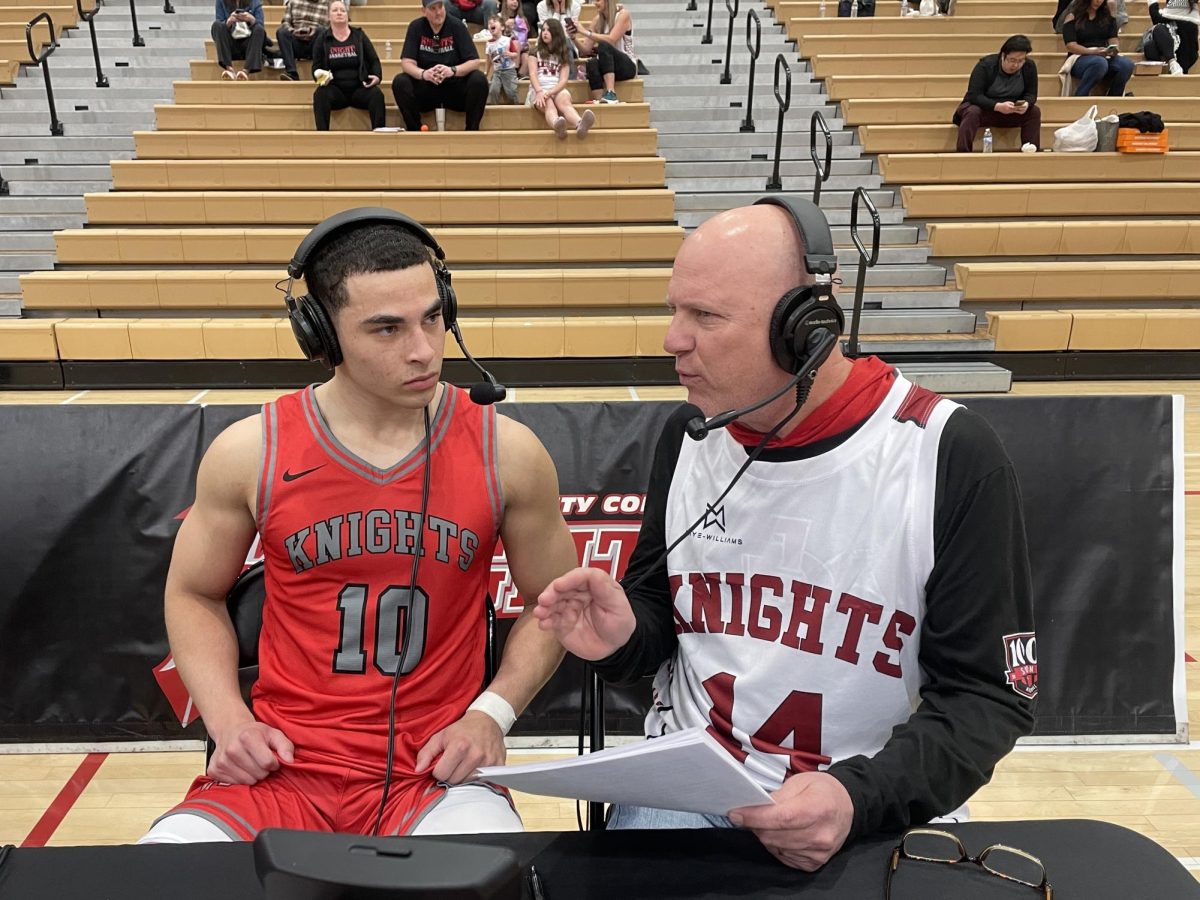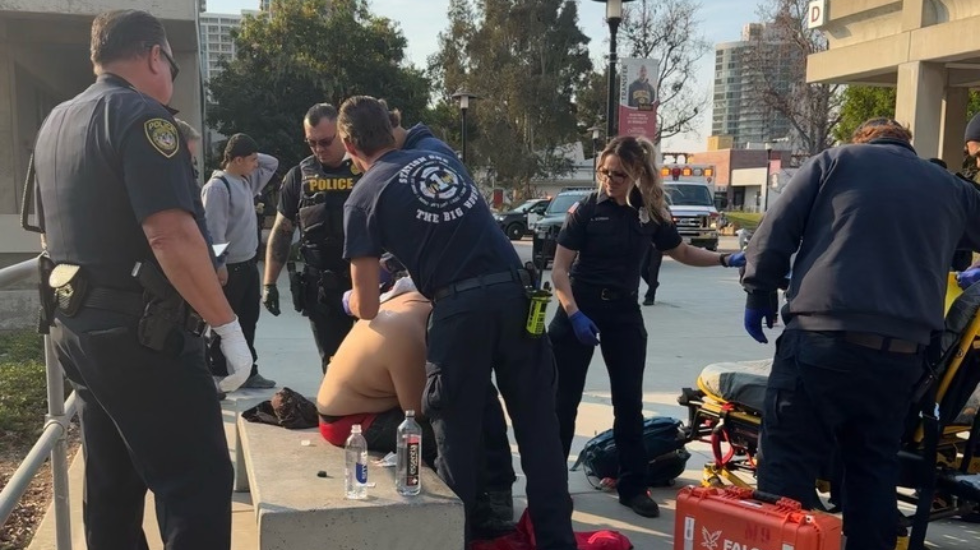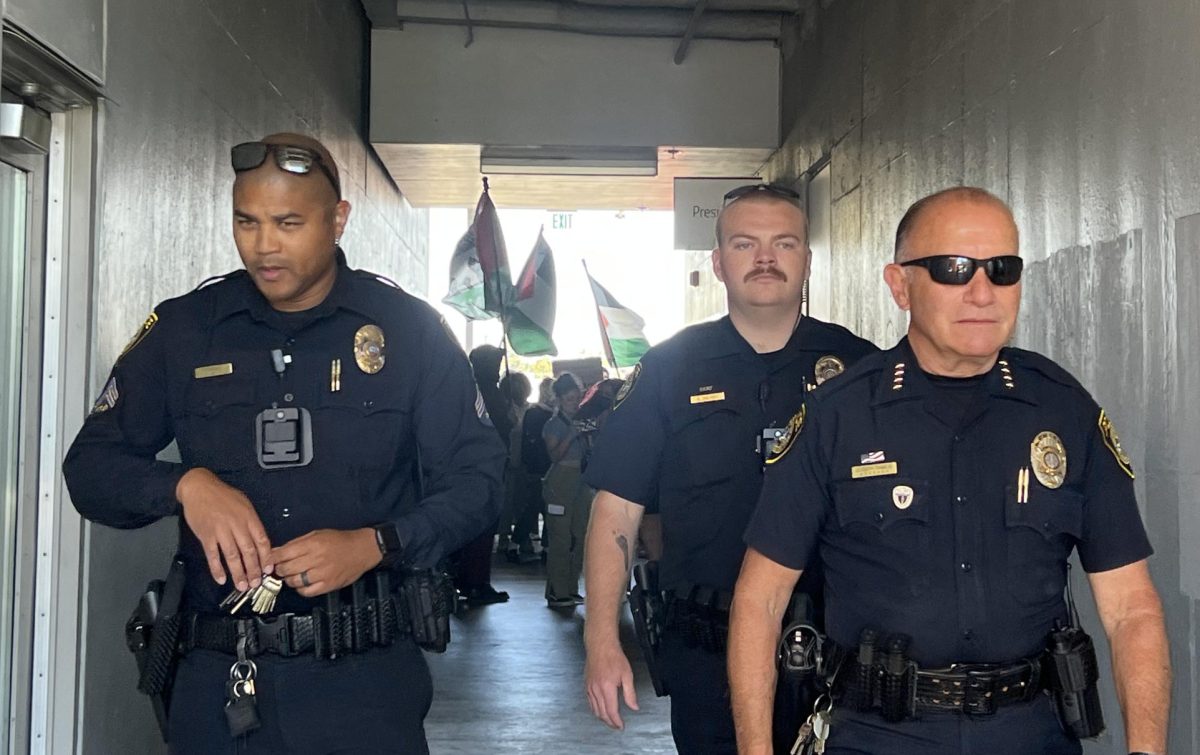San Diego City College students have the highest rates of basic needs in the San Diego Community College District, according to data in the survey “Report on Housing and Food Insecurities.”
Of the 5,600 responses to the SDCCD survey, 51% of City College students said they faced food insecurity, 68% faced housing insecurity and 28% faced homelessness, according to the executive summary shown at a board of trustees study session last month.
African American and Native American students faced the highest insecurities, as well as students between 21 and 30 years old, and LGBTQ+ students, according the data.
“The disparities at those origins have continued to impact who can show up and participate in higher education,” SDCCD Chancellor Greg Smith said.
According to the executive summary, City College holds the distinction because of City’s service area and location. In efforts to combat these insecurities, City College offers a range of basic needs services, including a food pantry, a barbershop and a clothing store.
The emergency food pantry is City College’s most used service with over 17,000 visits in 2023, according to the survey.
City College is also working on an affordable housing complex expected to open in the fall of 2028 to support students facing housing insecurity.
The survey was conducted by the Research and Planning Group for California Community Colleges also known as the RP Group alongside the CEO Affordability, Food and Housing Access Taskforce of the Community College League of California.
The purpose of the survey was to provide updated information about trends in the SDCCD regarding food and housing insecurities, according to the executive summary. The survey was last conducted in 2019 before the COVID-19 pandemic and updated data was needed to inform how to better help students.
Basic Needs Coordinator Nydia Dominguez attended the study session with City College President Ricky Shabazz and student Tammy Williams, who is president of the learning community Umoja at City.
Williams attended the meeting to provide a personal take on the services provided at City.
She recalled needing a white button-down work shirt for a new job and, after looking around, she found the shirt she needed at Threads and Things on campus without a cost to her.
Said Shabazz: “We have made leaps and bounds there (fighting food insecurity) because of the great work of Nydia and her team.”








